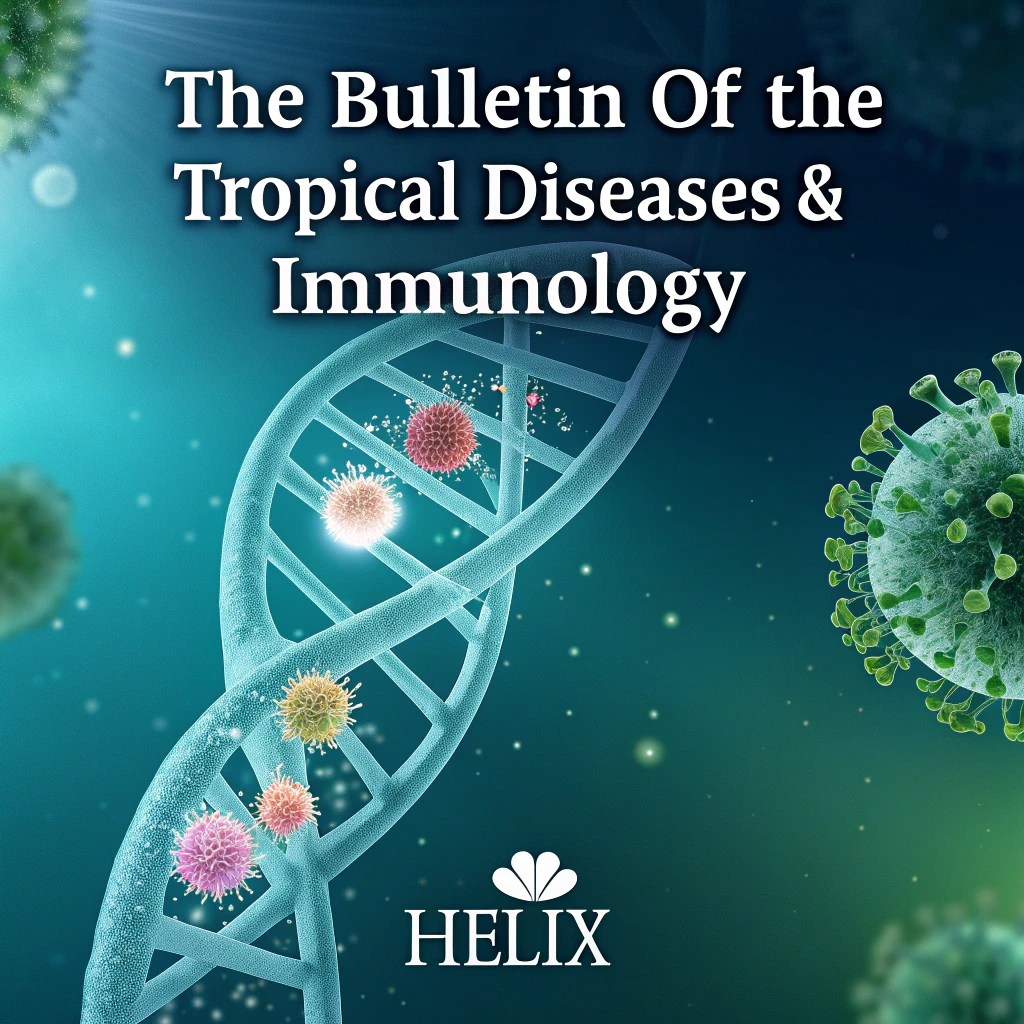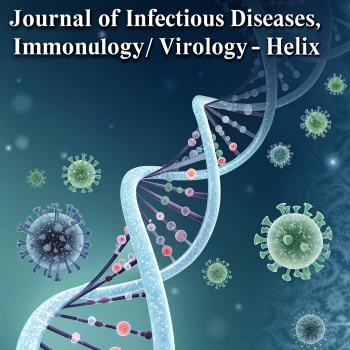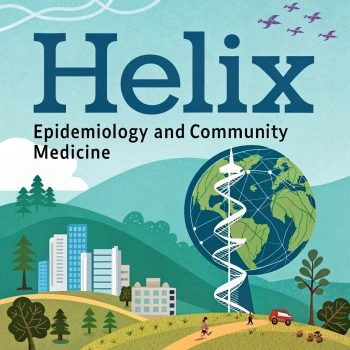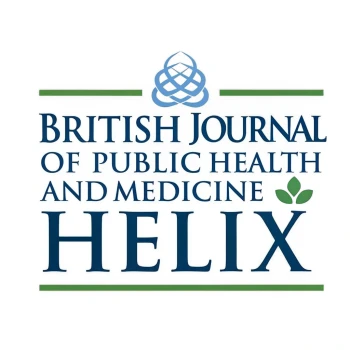Bulletin of the Tropical Diseases & Immunology-Helix is a publication of Helix Health Science www.helixhealthscience.com contact@helixhealthscience.com
Understanding the & Immunology: An Essential Resource
Introduction to Tropical Diseases
Tropical diseases are a group of infectious diseases that predominantly affect individuals living in tropical and subtropical regions of the world. Characterized by their prevalence in warm climates, these diseases are often associated with conditions such as poverty, inadequate healthcare, and lack of sanitation. Common examples of tropical diseases include malaria, dengue fever, Zika virus, and schistosomiasis. The World Health Organization (WHO) recognizes over 20 types of tropical diseases, which collectively pose significant health risks to populations in affected areas.
The significance of tropical diseases extends beyond individual health, as they contribute to broader socio-economic challenges. High morbidity and mortality rates associated with these diseases can hinder economic development, strain healthcare systems, and perpetuate cycles of poverty. The global burden of tropical diseases is substantial; millions are lost to premature death and disability each year, making them a pressing public health concern. Moreover, globalization and climate change are reshaping the epidemiology of these diseases, with an increase in their spread to previously unaffected regions.
The epidemiology of tropical diseases indicates that they are not confined solely to the geographic locations of their origin. Factors such as international travel, migration, and environmental changes influence their transmission. As such, understanding the demographics of affected populations—particularly vulnerable groups such as children, the elderly, and immunocompromised individuals—is crucial for effective disease control strategies. Efforts to combat tropical diseases necessitate a multi-sectoral approach involving governments, public health organizations, and communities alike. This collaborative action is fundamental to improving health outcomes and reducing the overall impact of tropical diseases globally.
The Role of the Bulletin in Disease Prevention and Control
The Bulletin of Tropical Diseases serves a pivotal role in the global landscape of public health, particularly in the fight against tropical diseases. It acts as a vital platform for the dissemination of research findings that are crucial to understanding the epidemiology of these diseases, thus enabling effective prevention and control measures. Health professionals, researchers, and policymakers turn to this publication to access credible information that shapes strategies to combat the spread of tropical illnesses.
One of the primary functions of the Bulletin is to publish research that highlights emerging trends and new data about tropical diseases. This includes surveillance reports, studies on transmission patterns, and insights into environmental factors affecting disease prevalence. By distilling complex research into comprehensible articles, the Bulletin ensures that critical information reaches a broader audience, including practitioners who may not have specialized expertise in tropical medicine.
Additionally, the Bulletin features guidelines and frameworks for the management and treatment of tropical diseases. These clinical protocols are essential for ensuring that healthcare providers have access to the latest evidence-based practices. Timely updates from the Bulletin foster an informed healthcare environment, enabling practitioners to implement effective interventions based on the most recent knowledge. This, in turn, contributes to improved patient outcomes and the overall efficacy of health systems in addressing tropical diseases.
The Bulletin also serves as an advocacy tool, highlighting public health issues that require immediate attention and resource allocation. By bringing attention to specific diseases and their impact on vulnerable populations, the Bulletin supports policymakers in making informed decisions about public health initiatives. Overall, the Bulletin of Tropical Diseases is an indispensable resource that enhances disease prevention and control efforts, promoting a collaborative approach to tackling tropical diseases on a global scale.
Current Trends and Challenges in Tropical Disease Research
The field of tropical disease research has witnessed significant evolution in recent years, characterized by a dynamic interplay of emerging diseases and changing epidemiological patterns. Researchers are increasingly focused on understanding the emergence of new pathogens, such as the Nipah virus and Zika virus, which pose substantial public health threats in endemic regions. This has necessitated a shift in research priorities towards enhanced surveillance and rapid response mechanisms to address novel challenges in tropical disease management.
Moreover, advancements in genomic sequencing and bioinformatics have facilitated the identification of genetic factors that contribute to the virulence and transmission modes of these diseases. These scientific breakthroughs enable researchers to devise targeted therapeutic interventions and preventive measures, such as vaccines and treatments tailored to specific demographic groups affected by these diseases.
However, research in this area is not without its obstacles. A primary challenge is the persistent issue of funding limitations, which often hampers the progression of innovative studies. Many tropical diseases affect low-income regions where healthcare infrastructure is inadequate, leading to difficulties in accessing essential resources for research and patient care. Consequently, the lack of investment in these regions reflects an inequitable distribution of healthcare opportunities, which further complicates effective disease management.
Climate change has also emerged as a significant factor influencing the distribution and transmission patterns of tropical diseases. As temperatures rise and weather patterns shift, the habitats of disease vectors such as mosquitoes are altered, leading to the potential spread of diseases into previously unaffected areas. Researchers are tasked with understanding these complex interactions to develop adaptive strategies to manage and mitigate the impact of climate-induced changes on tropical disease dynamics.
Future Directions and Opportunities in Tropical Disease Management
The management and research of tropical diseases are entering a transformative phase, driven by advancements in technology and a renewed focus on global collaboration. Emerging technologies, such as artificial intelligence and big data analytics, are revolutionizing the way researchers approach data collection, disease modeling, and outbreak prediction. By harnessing these technologies, professionals can analyze large datasets from diverse regions to identify patterns and trends, ultimately facilitating timely interventions and resource allocation for tropical disease control.
In addition to technological advancements, the importance of international partnerships cannot be overstated. Collaborative efforts among governments, non-governmental organizations, and academic institutions play a critical role in addressing the complexities of tropical disease management. Initiatives such as the Global Fund to Fight AIDS, Tuberculosis, and Malaria demonstrate the efficacy of joint ventures in mobilizing resources and expertise. These partnerships foster the sharing of knowledge and innovative solutions, strengthening the global response to tropical diseases.
Furthermore, innovative public health strategies are paramount in managing tropical diseases effectively. Community engagement and participation are essential components of any successful health initiative. By establishing trust and transparency, public health authorities can ensure that local populations actively participate in disease prevention and control measures. Education and awareness campaigns can empower communities to recognize symptoms, adopt preventive measures, and seek timely treatment, ultimately reducing the burden of tropical diseases.
The Bulletin of Tropical Diseases serves as an invaluable resource in this context, offering a platform for disseminating research findings and public health strategies. By providing access to the latest developments, the Bulletin facilitates a proactive approach to tropical disease management. It encourages professionals, policymakers, and educators to collaborate and remain informed, thereby fostering a comprehensive understanding and response to the challenges posed by tropical diseases in the future.











